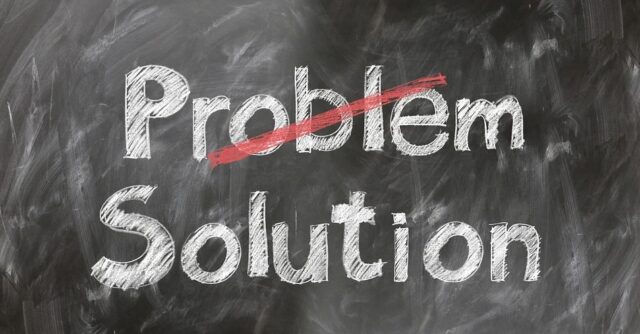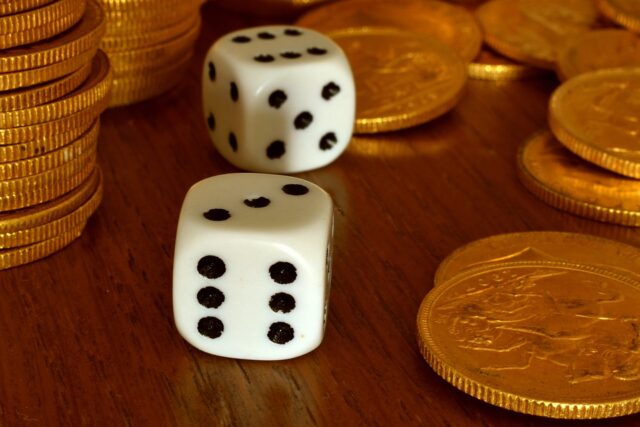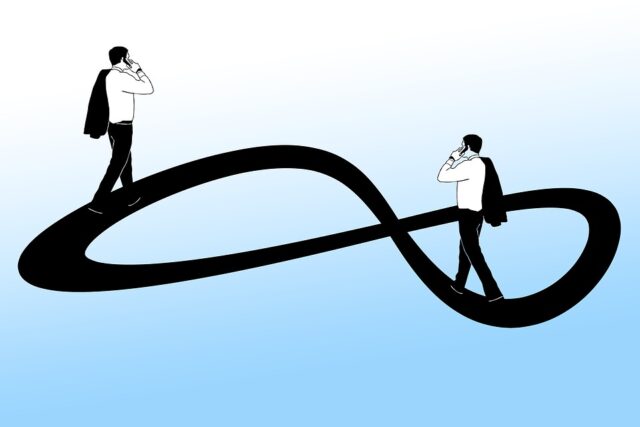
The strategy in question dates back to the 60s and 70s. At that time, no one would dare to call it a specific tactic or scheme to improve betting, because the Hall’s paradox was a simple mathematical puzzle with a somewhat confusing principle, which directly pointed to the inability of people to make the right decisions even in simple situations.
Hall’s paradox was named after the TV host who hosted the show “Let’s Make a Deal” with the grand prize being a fancy Cadillac car. To get the car, the player had to guess which door out of the three presented. The player had to open one door, and Monty Hall would open the other and suggest that the person change their choice. Nothing hard, right? But there weren’t many winners in the show. Players who were faced with a choice based on probability theory stayed with their original opinion, although if you counted, the possibility that the car behind the unopened door was twice as likely.
Even at that time, everyone was struck by the principle of the TV show, because it demonstrated the characteristics of the reaction of ordinary people in choosing the right decision. The theory of probability in many cases simply receded into the background, because the desire to make a profit was somewhat greater than the ability to calculate all the data and trust the numbers. The best mathematicians in the world recognized Hall’s theory (the original name) as a paradox and even complained that the calculations were out of bounds and fundamentally wrong, whichever way you look at it.
Practical Example of How to Solve a Problem

Initially, let’s look at an example of solving a problem on the same TV show. Let’s say that any machinations are forbidden and the main prize is in the same place. Accordingly, the same is observed at any bookmaker’s office, because the odds do not swap places.
We have three doors, so accordingly, the chances of guessing where the top prize is equal to 33.3%. After the opening of one door, there are only 2, respectively, the probability is equal to 50%. Of course, the options are also two – stay with the initial opinion or change your mind. Many insist on their own opinion, but in most cases they are wrong. Statistics show that those players who changed their mind won several times more often than others. If you stay with your opinion, the odds stay the same: 33.3%. Changing your mind raises the odds to 66.5%. On the one hand this is absolute absurdity and nonsense, but on the other hand there is a logical explanation.
So let’s try to understand this paradox. In the beginning, the chance of guessing the door with a prize is 33.3%. Suppose it will be called “A”. Accordingly, the remaining doors “B” and “C” together offer a chance of 66.5%. Once one door is opened and the main prize is not there, it is obvious that the probability is equal to zero. Consequently, the player’s bet is still 33.3%, if there is no change. Since there are only 2 doors left, the overall odds are 100%, so it is easy to calculate that if the decision is changed, the bet will have a 66.5% probability.
The Hall Paradox for Sports Betting

We could talk about Hall’s Paradox for hours on end, but we want to discuss not the usual odds and TV shows, but the application of the strategy in betting. How realistic it is to make a profit using essentially imperfect tactics? Say unequivocally nothing of course, because there must be a good reason for the bettor to change his decision, meaningful and obtained as a result of careful analysis.
Let’s look at an example of a soccer match between a favorite and an underdog. Before the match, the bettor was 100% confident in betting on F1(-1). The odds are decent, the forecast has a high probability of going in and overall looks pretty good. Before the match, there is information that the favorite’s lineup has changed – three leaders have left at once. It’s easy to understand that now the team should at least win, and it’s not worth thinking about a handicap. Will the bettor stick to his opinion? It is unlikely, especially Hall’s paradox, that any change and innovation before or even during the game, requires a review of the probability of occurrence of a particular outcome. In simple terms, when changes in the game occur, you have to react to them promptly, otherwise the odds of winning go down. At first glance, if the outsider wins, you can regard everything as pure chance.
One of the most catastrophic and even fatal mistakes of any bettor is considered to be the wrong attitude towards probability. If you consider it a pure chance always – to achieve success is extremely difficult and even impossible. Any probability is a strict mathematical approach, and quite often this includes the choice of several events with the same odds. If you understand these nuances, you will not have to make mistakes and risk your bankroll.
The ability to correctly assess the probability of the outcomes is the key to correctly determine the jackpot bets. Hall’s paradox helps in this as much as possible. Also, the theory says that it is good to have a stable and confident opinion, but it is not always true in every situation. If conditions change, so even more so. This opinion is relevant not only for soccer, but also for other sports. Optimal odds are presented for a fight between equal teams, but the “favorite vs. underdog” variant also goes quite well in some cases.
Options for Applying the Hallmark Paradox in Betting

By and large, the Hall’s paradox can be used to implement all kinds of bets and tactical developments. Below we present the main options that, in our opinion, are suitable in conjunction with the strategy under consideration and will give the appropriate efficiency:
When betting a one-match longshot. Risky kind of prediction can be simplified a little, but to react to the changes in this case will have to be very fast. For example, a player chooses a game between the top hockey teams of Canada and the United States. Before the game, he bets on the Canadians to win, but the news comes that their best forward and team captain will not be playing. The bettor waits for the live game to watch it and, if necessary, use the overtake to win back his money. Naturally, losses in the lineup can affect the course of the game, so you need to react quickly to changes by choosing other bets.
Flying the favorite out of the cup. Everyone knows that many top clubs have cup confrontations that prevent them from concentrating on more serious games. However, most teams sign advertising contracts, which mandatorily require at least 50% of the base line and a few leaders to appear in the match. This is extra money, although there is no need to give 100% of your best players. Therefore, the odds on the outsider may be large, but in reality it is completely different. Therefore, it is necessary to analyze all events, calculate the motivation of the grandee for the cup and choose a different decision, not the same as always. This is in the case when the bettor preferably chooses to bet on the favorite in most situations.
Betting against the prognostication. Here it is even easier, sometimes the line seriously “sags” because one category of people loads on a certain outcome. For example, on TB2.5 was odds of 1.7, and professional bettors believe that there will be a draw match. TM2.5 is worth 2.2. Therefore, many begin to bet on the TM and overload the line. Accordingly, it is necessary to analyze the information and bet correctly.
Let us also consider using Hall’s paradox for betting on the long term. Let’s try to guess the soccer world champion. The bookmakers initially give the following odds for the favorites: France (2.2), England (3.5), and Brazil (5). Our money is on the English team, but according to the latest information three of its leaders will miss the tournament because of injuries. Fears are confirmed in the first games, which ended in a draw, but England has a chance to get out of the group to the playoffs.
What to do in this situation? Either stay with your choice and believe in the victory of the English or once again analyze the situation around the tournament and the England team itself to earn. According to Hall’s paradox, it is necessary to bet against the English and the other national team. There is no need to delay with the decision, because in the process of the matches the odds on the favorites will drop significantly. If you change your choice, you can win back the bet on England and get a net profit. Accordingly, when losing the second prediction can play the first.
Features and Advantages of the Hall Paradox

If you delve into the subject, it may seem that there is a problem of using rational thinking. In fact, it looks like this: the decision is conscious, made after careful analysis or based on intuition, but it must be reversed. Where is the logic accordingly? And there really is one. When the situation remains unchanged, of course no change is necessary. But when a significant factor is present, it is not just possible, but crucial to change the decision in order to achieve good results. This applies to betting and any other area of life.
It has long been proven that anyone can be wrong even in simple mathematical calculations, let alone even in assessing probability. We can distinguish 3 main types of decisions:
Quick, intuitive. A decision is made based on facts already known. For example, betting on the favorite. What does Hall’s paradox say in this case? Having three of the same options doesn’t knock it down one bit, and when two are left, the odds become 50/50. Naturally in the example that would be the case, but in life the odds may be different.
Slow, rational. If the options differ in texture, color, odds or other features that can already be analyzed, the decision will not be obvious. A person will begin to think, ponder and compare the facts. Accordingly, after a qualitative study of the indicators, the decision can be made with an increased likelihood of success.
Following the opinion of the crowd. This is the worst case scenario, to which any laws and strategies are beyond control. If you blindly believe in someone, because he has been betting for 50 years, there is absolutely no guarantee that absolutely everything will go well. There are always risks, but it is better to trust your own calculations, improve yourself and improve your approach to betting.
In simple words, if a person sees a pair of Real Madrid – Cartagena and odds of 1.6 – 3.8, in the first case, the bettor will choose Real. Intuitively, it is clear that Madrid is the stronger team, but Cartagena – who is that anyway? Well, the odds are good that they are high.
In the second case, the bettor will wonder why such quotes and conduct his own analysis. It turns out that the main striker of Real Madrid won’t play, and also the cup match is not interesting for the team, because they will have to play in 3 days in the Champions League. So you can try to bet on the underdog. Well, I don’t even want to describe the third situation, because almost in every article we recommend to bet consciously, responsibly and according to analysis on an individual basis.
Thus, it turns out that if the statistics are visualized and analyzed correctly, it will increase the efficiency of strategy choice. Consequently, the decision will be fully rational, not intuitive, and especially not unconscious.
Source: bookmakeradvisor.com









